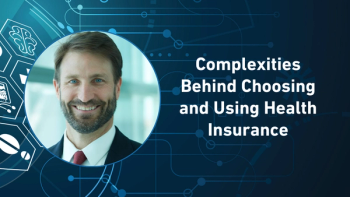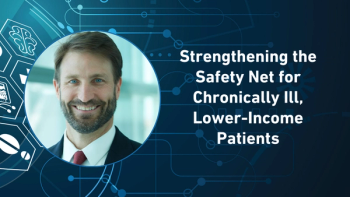
The Hidden Challenge of Reporting Counterfeit Medicines
In the fourth part of his Pharma Commerce video interview, Sean O’Hearen, founder and principal consultant at 1st Line Partners, describes the prominence of underreporting falsified medicines.
In a video interview with Pharma Commerce, Sean O’Hearen, founder and principal consultant at 1st Line Partners, discusses the critical issue of substandard and falsified (SF) medicines and the lack of awareness among healthcare professionals (HCPs). Despite SF drugs posing a growing global health risk, only 2% of HCPs are trained to detect them, and over 80% don’t consider them a serious threat. The Johns Hopkins Bloomberg School of Public Health has recently started focusing on this issue, holding its second symposium on the topic with support from Pfizer. Their work is encouraging, signaling that academic institutions are beginning to address these systemic educational gaps.
O’Hearen notes he’s not an expert in medical or pharmacy education but emphasizes that the BESAFE report—referenced in the interview—offers actionable recommendations. These include integrating SF medicine awareness into undergraduate curricula for healthcare students, establishing dedicated modules in medical schools, and expanding continuing education for practicing professionals. In his experience, frontline education, especially at infusion centers administering life-saving treatments like oncology drugs, plays a critical role in identifying and preventing counterfeit drug use. Nurses and healthcare workers trained to detect signs of falsification are a vital line of defense.
Efforts are underway globally, with the World Health Organization and the International Pharmaceutical Federation leading collaborative projects with African universities in countries like Nigeria, Uganda, and Tanzania. These efforts aim to establish standardized, research-backed curricula to address the growing threat of SF medicines, especially in regions more vulnerable to drug fraud.
While progress is being made, O’Hearen believes the issue is still in its early stages of recognition and response. With more academic and clinical institutions like Johns Hopkins stepping up, the hope is to eventually embed SF medicine detection and awareness into formalized education systems worldwide—closing critical gaps in the healthcare supply chain and improving patient safety.
He also comments on how the private sector should support and scale these efforts to ensure that HCPs globally receive standardized training; the communication strategies stakeholders should adopt to alert without alarming, ensuring patients stay confident in genuine pharmaceuticals, while also remaining vigilant against counterfeit threats; and much more.
A transcript of his conversation with PC can be found below.
PC: Why has the underreporting of falsified medicines been such a prominent issue?
O’Hearen:I think there's a very significant issue related to under reporting. Obviously, it's connected to the awareness issue. But I think the consumer behavior, is that if you do go on to the internet or social media and you buy a medicine, you recognize, okay, something's wrong, either the packaging or you took it and nothing happened, or whatever the case may be, I think there's a reluctance to report that because you're almost embarrassed that you were scammed.
They just may not know where to report it. I think that's the key messaging that goes on is creating the awareness, how do I report it, and really encouraging people to report. It's interesting, too. When you look at like the PSI data, you see that in the US, surprisingly (this data is public on their website), if you look regionally, the United States has the most incidents, and people say, how is that the case? How was it not China? Well, it's because our customs regime, our defenses are better. People are more likely to report.
Newsletter
Stay ahead in the life sciences industry with Pharmaceutical Commerce, the latest news, trends, and strategies in drug distribution, commercialization, and market access.




